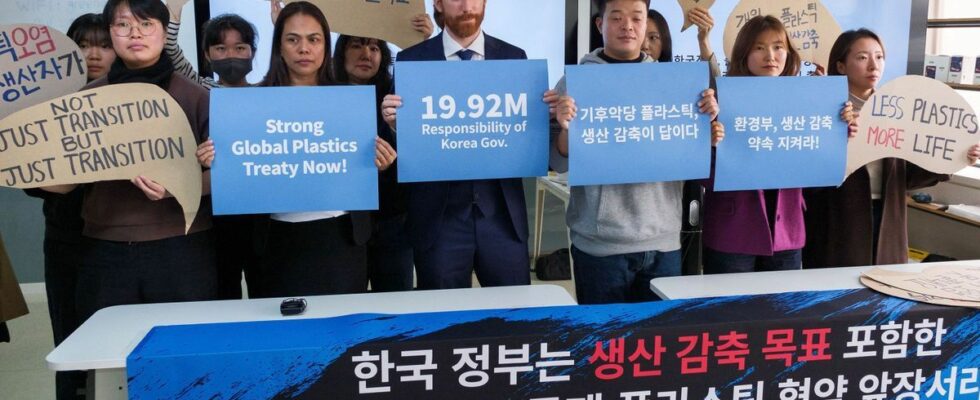Published on
updated on
Reading 2 min.
South Korea, host next week in Busan of a crucial UN conference on plastic pollution, is a “major contributor” to this scourge, says a Greenpeace study published Tuesday.
South Korea’s plastic production capacity, the fourth in the world behind those of China, the United States and Saudi Arabia, amounts to 19.92 million tonnes per year, or 5% of the global total, according to Greenpeace. Plastic production in the country generates 99.93 million tonnes of CO2 emissions, almost as much as South Korea’s entire transportation sector.
This study was published as the fifth and in principle final session of the UN committee on plastic pollution (INC-5), responsible for drafting a global treaty to put an end to this phenomenon, opens on November 25 in Busan. .
The 175 countries that will participate in this meeting are divided, between those who want strict wording to reduce plastic production, and most oil-producing countries who prefer less restrictive targets.
“South Korea, which hosts the plastic pollution talks, is actually a leader in this area“said the author of the Greenpeace study, Daniel Read, at a press conference in Seoul. “As INC-5 Chairman, the Korean Government Has an Obligation to Lead by Example.”
He called on Seoul to “establish legally binding targets for the petrochemical industry” in order to “contribute to the reduction of primary plastic polymers worldwide by at least 75% by 2040 compared to 2019 levels“.
The study also points the finger at Taiwan and Japan, whose production capacities are respectively 13.04 and 9.02 million tonnes per year. Along with South Korea, the three countries produce 11% of the world’s plastic.
Another environmental association, Green Korea United, criticized the South Korean government’s “passive attitude” during negotiations on plastic, and “the constant rollback of regulations on single-use plastics” in the country.
South Korea adopted regulations in 2022 punishing businesses or restaurants using single-use plastic bags, straws or cutlery with a fine of up to 3 million won (2,000 euros). But a year later, the government finally gave up punishing offenders.
